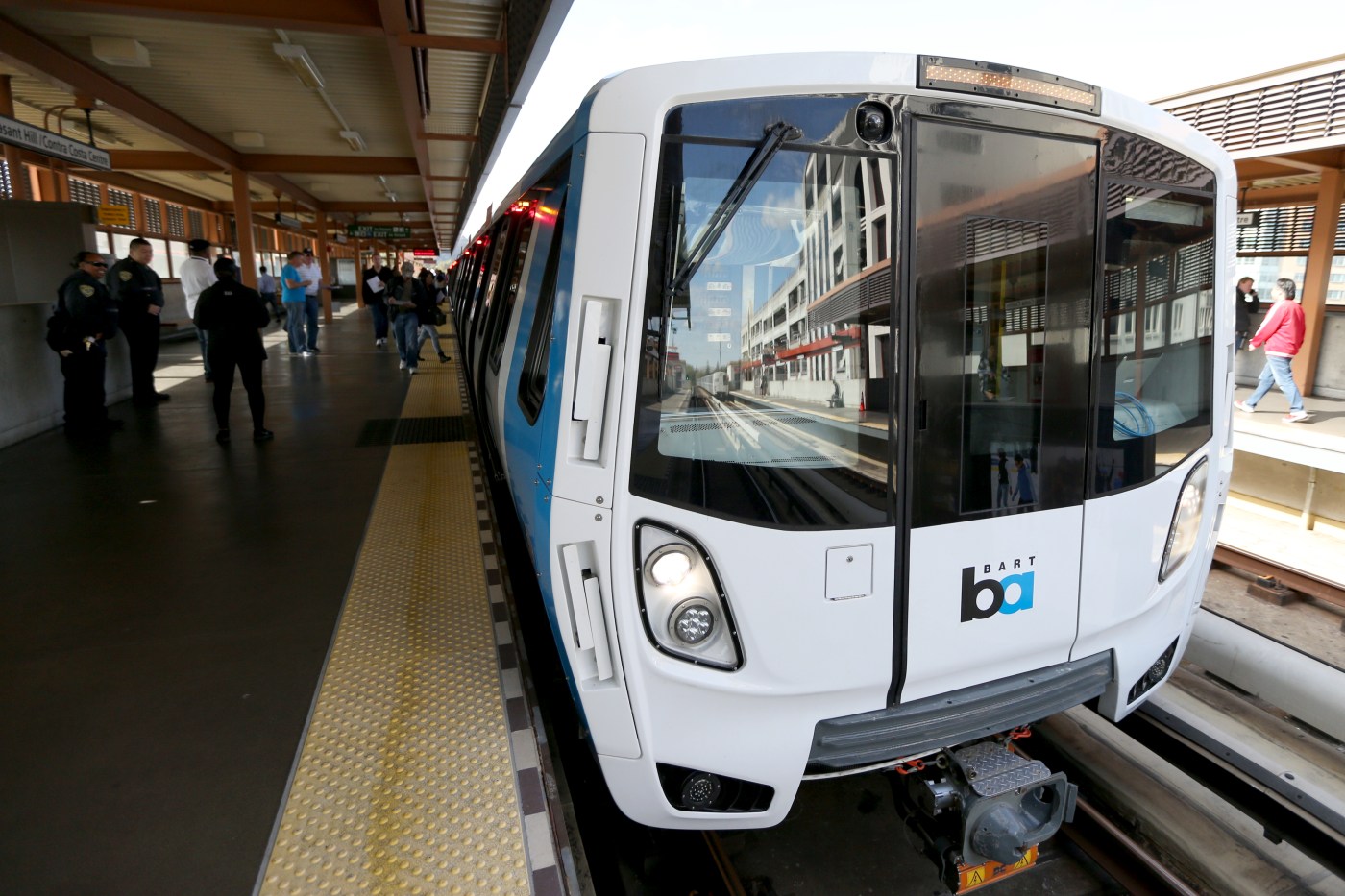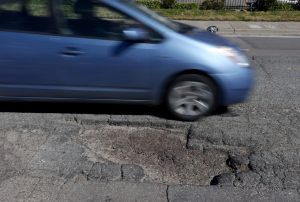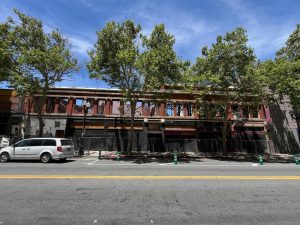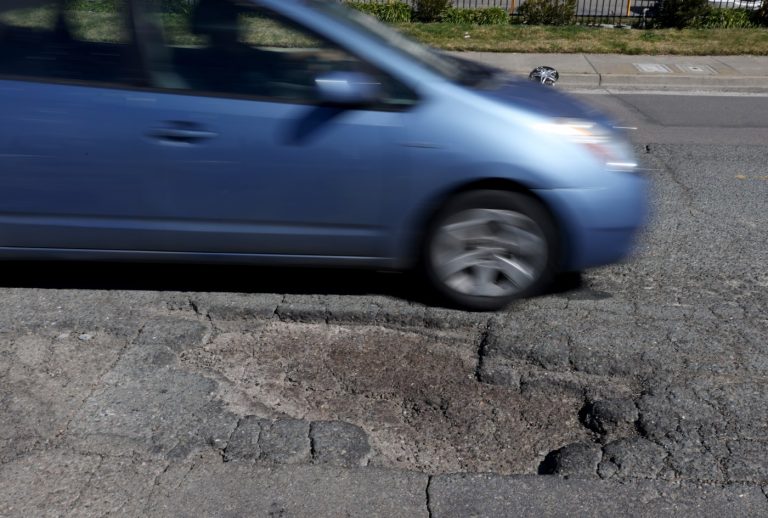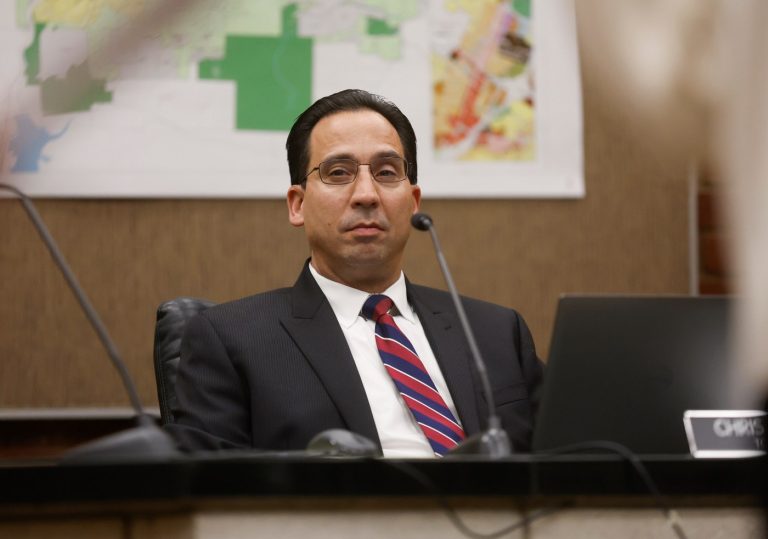Former Chicago Mayor Rham Emanuel once said, “You never want a serious crisis to go to waste.”
BART has taken Emanuel’s advice to heart.
Today, four years after transit ridership across the country was gutted by the pandemic, most urban transit systems have managed to stabilize, in part by making hard choices about service levels and labor costs.
“Taxpayers should reject any new funding until BART changes its ways,” writes BART Director Debora Allen. (Jose Carlos Fajardo/Bay Area News Group)
BART management, however, appears uninterested in addressing its monumental operating deficits.
That’s because “fiscal crisis” has become a rather successful operating model for BART. A crisis, after all, creates confusion and calls for immediate action, irrespective of cost and common sense. It gives cover for irrational decisions to be accepted because, you know, “It’s a CRISIS!”
Confusion creates an opportunity for BART to perpetuate calls for more money — not just from the transit district’s three counties but from the entire Bay Area — with PR spin narratives like, “It’s not our fault! We can’t lose BART!”
BART prefers to play victim and not address its money problems in part because a coalition of stakeholders stand to gain from the continuing crisis, including its labor-dominated board members, executive management, our enabling Bay Area elected officials, transit activists, non-profits and labor unions.
For BART to be in crisis creates opportunities for never-ending streams of future taxpayer funds to use on pet projects and things other than improving public transit — housing development, real estate speculation, new lavish headquarters buildings, excessive travel, alternative policing experiments, and a social services department dedicated to solving the Bay Area’s social justice problems.
BART’s crisis has been in the hands of the general manager, his team of 14-plus executives and the progressive board majority he has reported to since 2020. On the nine-member board, I am one of only two directors who have consistently tried to rein in the irresponsible spending, but to no avail.
Rather than take practical steps to resolve its huge operating deficits, BART prefers to simply beg taxpayers, both locally and across America, for billions more in funding to keep expanding the system far beyond rider demand.
Amazingly, despite ridership remaining flat at 43% of pre-pandemic levels for almost a year, BART’s newest operating budget actually increases spending by 11% over 2024, which was 9% higher than 2023. Labor costs represent 77% of operating expenses.
BART’s labor force continues to grow, both in numbers and compensation packages. The costly work rules and benefit packages in BART’s non-police labor contracts have not been renegotiated since 2013. On Thursday, the board will vote on yet another extension of those contracts, which don’t expire until June 2025.
Meanwhile, BART’s political network continues to lobby government leaders for cash, an effort that successfully brought in over $2 billion in state and federal funds just for operations since mid-2020. That was easy money when the pandemic was still fresh, but it runs out in early 2026.
So, now, BART is the leading driver of a multibillion-dollar Bay Area tax measure planned for the 2026 ballot that would give the agency $400 million annually in perpetuity, just to balance its operating budget.
And soon after, I expect, BART will press for yet another regional ballot measure to tackle the $3 billion shortfall in its critical infrastructure needs, which have yet to be addressed. That’s on top of the $3.5 billion in Measure RR funds that passed in 2016 after BART assured taxpayers no other infrastructure funds would be needed for decades.
Related Articles
BART service restored after computer issue closes some stations
VTA announces billions of dollars in federal funding for BART to San Jose
BART power outage closes Oakland stations, causes systemwide delays
Transit news you can use: New fare gates at BART Civic Center station, Caltrain electrifies, BARTmobile comes to Orinda
Oakland distributing free debit cards to low-income residents in need of public transportation
To avoid a fiscal calamity, strong crisis management is needed. Normally, that involves a highly specialized team of experts who work independent of management, doing a deep analysis of the operations and developing both cost-containment and revenue plans. This usually includes streamlining processes, eliminating under-utilized services, consolidating redundant functions, renegotiating labor and vendor contracts, and plain old budget cuts. So far, little of that has happened at BART.
Instead of crisis management, BART seems to be employing crisis escalation techniques. Why? Because BART’s leaders and “labor partners” arrogantly believe that they are too big to fail.
Taxpayers should reject any new funding until BART changes its ways. California legislators should demand a deep analysis of the BART organization by industry experts, renegotiation of labor contracts, fundamental re-organization of the structure of its elected board, and an independent transit oversight and accountability agency.
It’s time BART committed to doing its part to end its fiscal crisis.
Debora Allen is a BART board director representing part of Contra Costa County.
